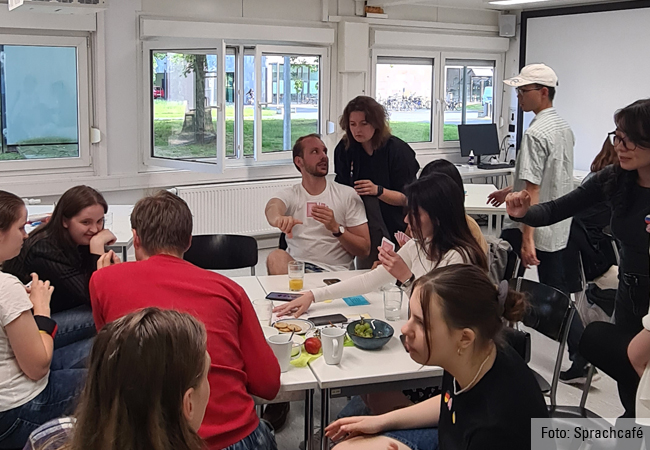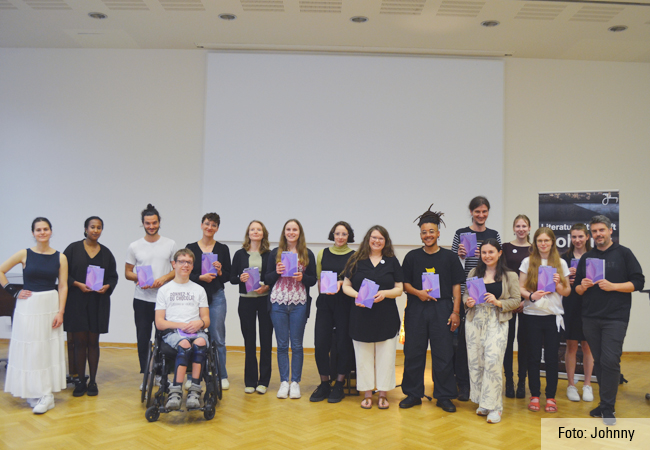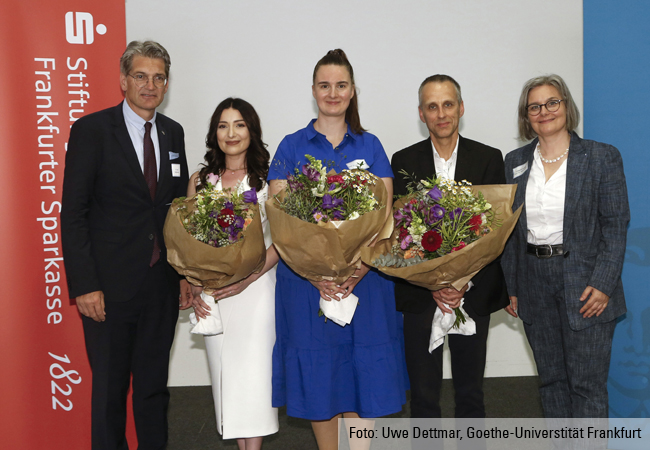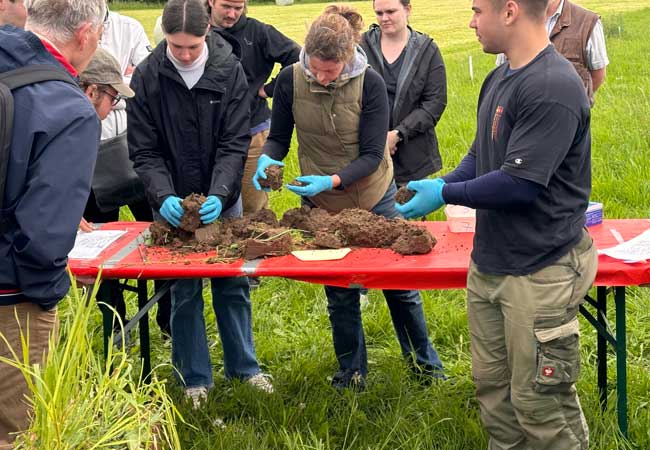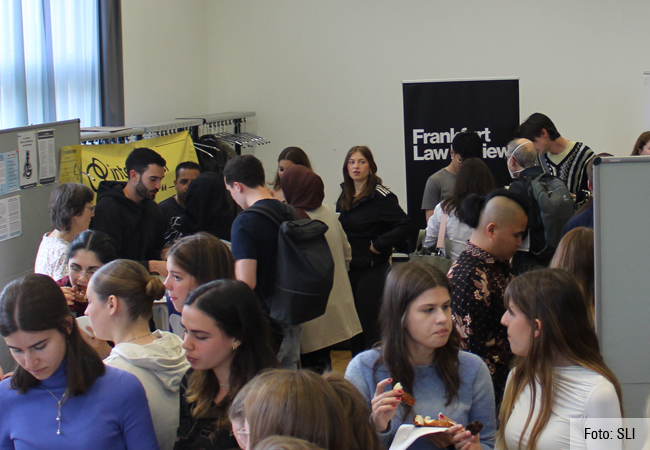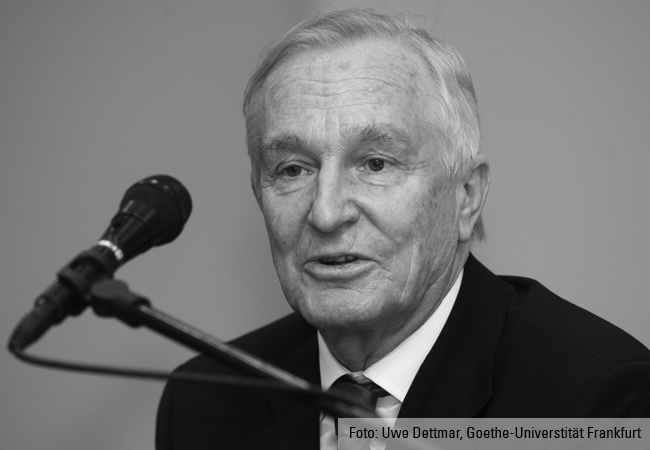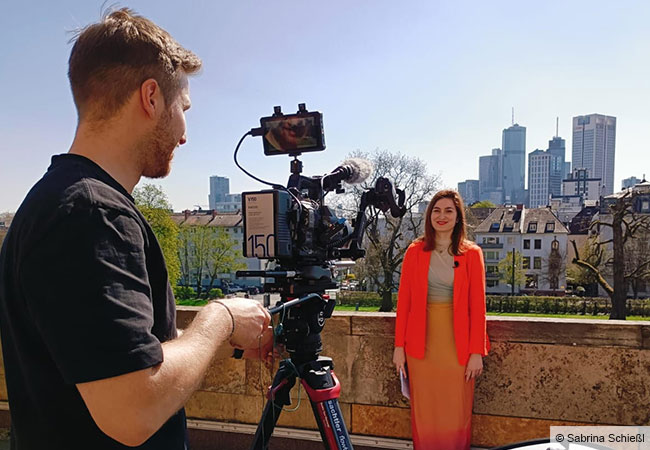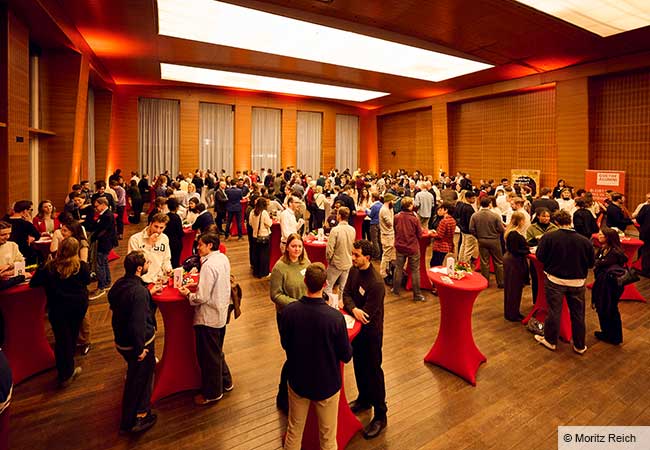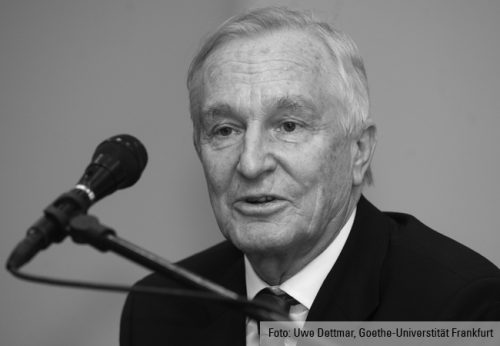
Goethe University Frankfurt mourns the loss of Professor Lothar Gall, who passed away on June 20, 2024, following a long and severe illness. After completing his doctoral degree in Munich and his habilitation in Cologne, he was first appointed professor in Giessen and Berlin before moving to the Chair of Modern History in Frankfurt in 1975, which he held for 30 years. In Frankfurt he found a congenial environment, which he himself significantly shaped. His strict work ethic and tremendous organizational talent enabled him to shift, apparently effortlessly, between the increasingly divergent domains of pioneering research, academic teaching and knowledge transfer, and to achieve the highest merits in all of them.
In his research, Gall explored the longer-term historical causes of National Socialism by asking why alternatives were unable to prevail. In this context, he was particularly interested in the interrelationship between political structures and individual courses of action, on which he worked in collaborative research projects such as “Stadt und Bürgertum im 19. Jahrhundert” (“The City and the Bourgeoisie in the 19th Century”), financed with funds from the Gottfried Wilhelm Leibniz Prize, and in biographies highly successful at the international level that found a wide audience beyond the specialist community. “Bismarck: The White Revolutionary” (first published in English in 1986) presented the “Iron Chancellor” as a “sorcerer’s apprentice” who with his German Reich solution had created a political structure whose consequences he was unable to control. Using the example of members of the Bassermann family, his book “Bürgertum in Deutschland” (“Bourgeoisie in Germany”), published in 1989, traces the path from economic advancement in the transition from a society based on social status to one based on class via the constitutional struggle of 1848 and the Conservative Revolution in the German Empire to exile under National Socialism. Over time, Gall’s interest in the role of entrepreneurs in the 20th century grew, including that of Hermann Josef Abs. One of his last publications, an essay published in 2014 in the “Historische Zeitschrift”, which he had edited since 1975, was dedicated to the continuity of elites between National Socialism and the Federal Republic using two examples from science and commerce.
Gall was active in numerous academic organizations; he was particularly enthusiastic about exhibitions and museums. Between 1971 and 1994, around 17 million people visited the exhibition “Questions on German History” in the Reichstag building. In 1998, he curated “Aufbruch zur Freiheit” (“Awakening to Freedom”) in Frankfurt to commemorate the revolution of 1848. He also played a key role in the founding of the Haus der Geschichte der Bundesrepublik (Museum of the History of the Federal Republic of Germany) in Bonn and the Deutsches Historisches Museum (German Historical Museum) in Berlin.
Gall was awarded the Grand Cross with Star of the Order of Merit of the Federal Republic of Germany, the Hessian Order of Merit and the Balzan Prize, which is awarded to outstanding scholars in the humanities and natural sciences, among others. Together with his wife, Professor Claudia Eder, he sponsored the generous Lothar Gall Prize to foster historical research at Goethe University Frankfurt.
Andreas Fahrmeir
Andreas Fahrmeir is a researcher and professor at Goethe University Frankfurt’s Institute of History. His research field is modern history, under special consideration of the 19th century.


